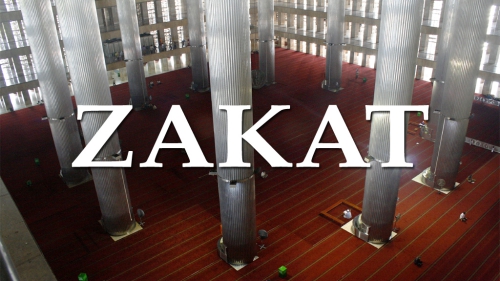Ramadan: Why should we afflict ourselves by fasting?

Jalal al-Din al-Rumi taught, "Ritual prayer can be different in every religion, but belief never changes." (Fihi Mafih) In the light of this insight I would like to share why I think of myself, especially during Ramadan, as a Reform Rabbi and a Muslim Jew. Actually, I am a Muslim Jew i.e. a faithful Jew submitting to the will of God, because I am a Reform Rabbi. As a Rabbi I am faithful to the covenant that God made with Abraham - the first Muslim Jew, and I submit to the commandments that God made with the people of Israel at Mount Sinai.
As a Reform Rabbi I believe that Jewish spiritual leaders should modify Jewish tradition as social and historical circumstances change and develop. I also believe we should not make religion difficult for people to practice. These are lessons that prophet Muhammad taught 12 centuries before the rise of Reform Judaism in the early 19th century. Reform Jews are the largest of the Jewish denominations in the U.S. and Canada. In the U.K..Reform Judaism is called Liberal Judaism.
I am a Reform Rabbi who has been studying Islam for almost 55years. I think it is vitally important for our generation to understand how much Islam and Judaism have in common. Fasting is one area where this commonality is very evident. In North America and the U.K.,
Jews and Muslims are the two religious groups that most noticeably practice fasting. The rules about fasting are very similar in both Jewish and Muslim law. Since there are several religious values involved in fasting; Muslims will see many similarities, and a few differences, in the following teachings about restricting what and when we eat in the Jewish tradition.
Why should people restrict their culinary pleasures? More outrageous, why should we afflict ourselves by fasting? Don't most people think that being happy is the most important thing? Isn't eating one of the most accessible pleasures we have? Why do Islam and Judaism restrict their adherents from the simple pleasure of food each year? For the entire the month of Ramadan, Muslims fast from first light until sundown, abstaining from food, drink, and marital relations.
The Qur'an says "Oh you who believe! Fasting is prescribed to you as it was prescribed to those before you, that you may (learn) self-restraint," Qur'an 2:183. Why should the Torah decree for Jews a day of fasting? (Leviticus 16:29, 23:27) when for twenty-four hours adult Jews (in good health) are supposed to afflict their souls by abstaining from eating, drinking and marital relations. Both religions teach us that what we do not eat may be even more important than what we do eat.
All animals eat, but only humans choose to not eat some foods that are both nutritious and tasty. Some people do not eat meat for religious/ethical reasons. Jews and Muslims do not eat pork for religious/spiritual reasons. On fast days like Yom Kippur - the Day of Atonement and the 9th of Av (a day of mourning like the Shi'a observance of Ashura on the 10th of Muharram) Jews do not eat or drink, and abstain from marital relations for twenty-four hours. Fasting results in many different outcomes that help bring us closer to God.Muslims will recognize the many similarities, and the interesting differences, that Islam and Judaism share.
First of all, fasting teaches compassion. It is easy to talk about the world's problem of hunger. We can feel sorry that millions of people go to bed hungry each day. But not until one can actually feel it in one's own body is the impact truly there. Compassion based on empathy is much stronger and more consistent than compassion based on pity. This feeling must lead to action. Fasting is never an end in itself; that's why it has so many different outcomes. But all the other outcomes are of no real moral value if compassion is not enlarged and extended through fasting.
As the prophet Isaiah said, "The truth is that at the same time you fast, you pursue your own interests and oppress your workers. Your fasting makes you violent, and you quarrel and fight. The kind of fasting I want is this: remove the chains of oppression and the yoke of injustice, and let the oppressed go free. Share your food with the hungry and open your homes to the homeless poor" (Isaiah 58:3-7)
Second, fasting on Yom Kippur serves as a form of penance for Jews as it does for Muslims on Ramadan. Narrated Abu Huraira: Allah's Apostle (Allah's blessings and peace be upon him) said, "Whoever observes fasts during the month of Ramadan out of sincere faith, hoping to attain Allah's rewards, then all his past sins will be forgiven." (Sahih Al-Bukhari Vol 1). Though self inflicted pain may alleviate some guilt, it is much better to reduce one's guilt by offsetting acts of righteousness to others. This is why contributing to charity is an important part of Yom Kippur and Ramadan. Indeed, Judaism teaches that fasting that doesn't increase compassion is ignored by God.
The concept of fasting as penance also helps us understand that our hunger-pains can be beneficial. Contemporary culture desires happiness above all else. Any pain or suffering is seen as unnecessary and indeed evil. Though we occasionally hear people echo values from the past that suffering can help one grow, or that an existence unalloyed with pain would lack certain qualities of greatness, many today seem to think that the primary goal in life is "to always be happy and free of all discomfort."
The satisfaction one derives from the self-induced pain of fasting provides insight into a better way of reacting to the externally caused suffering we have to experience throughout life. Taking a pill is not always the best way to alleviate pain, especially if by doing so we allay the symptoms without reaching the root cause. We continually to prove that we can master ourselves, because we are aware of our frequent failures to be self-disciplined.
Fasting is also a way of preparing oneself to meet a major challenge. People in the Bible who faced great trials and troubles often prepared themselves through prayer and fasting. Whenever special courage, wisdom, insight or strength was needed, people who trusted in God turned to prayer and fasting.
For example, the Jewish community in Persia once was threatened by a government sanctioned pogrom, that resulted from a plot by the King's evil adviser; Haman. This name is well known to Muslims because it occurs six times in the Qur'an (28:6, 8, 38; 29:39; 40:24, 36)
These ayahs portray the Egyptian Haman as a official close to Pharaoh, who was in charge of building projects that Banu Israel were forced to work on. The Persian Haman organized groups of his own supporters to attack and plunder Jews throughout the Persian kingdom on one appointed day.
When the plot was leaked, the queen, who was Jewish, although nobody in the court knew it, was asked to intercede. Before Queen Esther approached the king to ask him to spare the Jews from destruction, she asked her people to join her during three days of prayer and fasting.
She felt that this dangerous enterprise needed prayers fortified by fasting if her effort was to be successful. Esther said, "When this is done, I will go to the king, even thought it is against the law. And if I perish, I perish," (Esther 4:16).
Consequently, Esther approached the king with confidence and boldness, persuading him to reverse an edict that called for devastating the Jewish people.
Fasting is also a way of preparing to meet a major challenge. People in the Bible who faced great trials and troubles often prepared themselves through prayer and fasting. Whenever special courage, wisdom, insight or strength was needed, people who trusted in God turned to prayer and fasting.
For example, the Jewish community in Persia once was threatened by a government sanctioned pogrom, that resulted from a plot by the King's evil adviser; Haman. This name is well known to Muslims because it occurs six times in the Qur'an (28:6, 8, 38; 29:39; 40:24, 36)
These ayahs portray the Egyptian Haman as a official close to Pharaoh, who was in charge of building projects that Banu Israel were forced to work on. The Persian Haman organized groups of his own supporters to attack and plunder Jews throughout the Persian kingdom on the appointed day.
When the plot was leaked, the queen, who was Jewish, although nobody in the court knew it, was asked to intercede. Before Queen Esther approached the king to ask him to spare the Jews from destruction, she asked her people to join her during three days of prayer and fasting.
She felt that this dangerous enterprise needed prayers fortified by fasting if her effort was to be successful. Esther said, "When this is done, I will go to the king, even thought it is against the law. And if I perish, I perish," (Esther 4:16). Consequently, Esther approached the king with confidence and boldness, persuading him to reverse an edict that called for the annihilation of the Jews.
The third outcome of fasting is improved physical health. Of course, one twenty-four hour fast will not have any more effect than one day of exercise. Only prolonged and regular fasting promotes health. The annual fast on Yom Kippur can, however, awaken us to the importance of "how much and how often we eat". For many years research has shown that when animals are somewhat underfed, receiving a balanced diet at below the normal quantity for maximum physical health, their life spans were prolonged from 50% to 100%.
With all the additives placed in food these days, a reduction of total food intake has to be healthful. More important, since our society has problems with overabundance, fasting provides a good lesson in the virtue of denial. Health problems caused by overeating are the most rapidly growing health problems in affluent Western countries.The World Health Organization estimates that one in thirteen adults in the western world will have diabetes by 2030.
Diabetes can lead to blindness, kidney disease, heart disease, nerve damage, amputations and sometimes death. The prevalence of the disease is related to high rates of obesity and a sedentary lifestyle, which increase the risk of developing the disease. More than half of adults in Los Angeles are overweight, and 60% do not get regular exercise.
One fifth of all those who are obese will develop diabetes. Thus going without all food and drink, even water, on Yom Kippur and Ramadan challenges us to think about the benefits of the very important religious teaching; less is more.
Fourth in our list of outcomes; fasting is a positive struggle against our dependencies. We live in a consumer society. We are constantly bombarded by advertising telling us that we must have this or that to be healthy, happy, popular or wise.
By fasting we assert that we need not be totally dependent on external things, even such essentials as food. If our most basic need for food and drink can be suspended for twenty-four hours, how much more our needs for all the nonessentials.
Judaism and Islam do not advocate asceticism as an end in itself. In fact it's against Muslim and Jewish law to deny ourselves normal physical pleasures. But in our overheated consumer society it is necessary periodically to turn off the constant pressure to consume, and to remind ourselves forcibly that "Man does not live by bread alone." (Deuteronomy 8:3)
Fifth, fasting is an exercise in will-power. Most people think they can't fast because it's too hard. But actually the discomfort of hunger pangs is relatively minor. A headache, muscle pains from too much exercise, and most certainly a toothache, are all more severe than the pains hunger produces. The reason it is so hard to fast is because it so easy to break your fast, since food is almost always in easy reach; all you have do is take a bite.
Thus the key to fasting is the will power to decide again and again not to eat or drink. Our society has increasingly become one of self indulgence. We lack self discipline. Fasting goes in direct opposition to our increasing "softness" in life.
When people exercise their will-power and fast, they are affirming their self-control and celebrating mastery over themselves. We need continually to prove that we can do it, because we are aware of our frequent failures to be self-disciplined.
Sixth, fasting is good for the soul. It often serves as an aid for spiritual experiences. For most people, especially those who have not fasted regularly before, hunger pains are a distraction. People who are not by nature spiritual/emotional individuals will probably find that a one-day fast is insufficient to help induce an altered state of consciousness.
Muslims can select a night or two to fast in addition to their daily fast; preferably during the first two weeks of Ramadan, when the moon is waxing. Jews are prohibited to fast prior to Yom Kippur; eating a good meal prior to Yom Kippur Eve is a mitzvah (religious duty), because Judaism like Islam opposes excessive asceticism.
The seventh outcome of fasting is the performance of a mitzvah (religious duty), which is, after all, the one fundamental reason for fasting on Yom Kippur. We do not do mitzvot (religious duties) in order to benefit ourselves, but because our duty as Jews requires that we do them. Fasting is a very personal mitzvah, with primarily personal consequences.
Fasting on Yom Kippur is a personal offering to God, from each and every Jew who fasts. For over 100 generations Jews have fasted on this day. A personal act of fasting is part of the Jewish people's covenant with God. The principal reason to fast at all, is to express our love for God and to fulfill God's commandment. The outcome of your fast can be any of a half dozen forms of self-fulfillment. But simply knowing that you have done one of your duties as a faithful Jew is the most basic and primary outcome of all.
Finally, fasting should be combined with the study of Torah (the five books of Moses specifically or Scriptural texts in general). Indeed, the more one studies, the less one needs to fast. A medieval text states, "Better to eat a little and study twice as much, for the study of Torah is superior to fasting."
Fasting is a very personal, experiential offering. However, though study is also a personal experience, it takes place with a text and/or a teacher. The Divine will is often more readily and truly experienced in study or in spiritual dialogue with others than in solitary meditation.
May our fasting become a first step toward the removal of the chains of self- oppression and narrow mindedness that enslave us, our neighbors, and our world! May future years of shared fasting by Muslims and Jews lead to a greater amount of understanding and respect through increased acceptance of religious pluralism.
May we always be a part of those organizations and movements that are fully committed to contributing to world peace, and who are equally committed to respecting both our own religion and our neighbor's. Fethullah Gulen points out: "We acknowledge the oneness and basic unity of religion, which is a symphony of God's blessings and mercy, and the universality of belief in religion."
Gulen's description of universal religion as a symphony is an excellent illustration. One cannot have harmony if everyone plays the same notes; and one cannot have symphony if everyone plays the same instruments. Individual conductors and composers are different, but the source of musical creativity is one. According to a Hadith narrated by Abu Huraira, Prophet Muhammad said, "The prophets are paternal brothers; their mothers are different, yet their religion is one (because they all have the same father)." (Bukhari, Book #55, Hadith #652)
Related Suggestions
In Surah Al-E-Imran, Allah states;
O People of the Scripture! Why will ye argue about Abraham, when the Torah and the Gospel were not revealed till after him? Have ye then no sense? (65) Lo! ye are those who argue about that whereof ye have some knowledge: Why then argue ye concerning that whereof ye have no knowledge? Allah knoweth. Ye know not. (66) Abraham was not a Jew, nor yet a Christian; but he was an upright man who had surrendered (to Allah), and he was not of the idolaters. (67)
Allah guides whom he wills.
The comment you made about fasting nights during Ramadan? Never heard of that and I too have studied Islam and Ahadith. Please give references when quoting a practice that may be cultural and not part of Islam at all. I'm all for interfaith, not deception though.

















